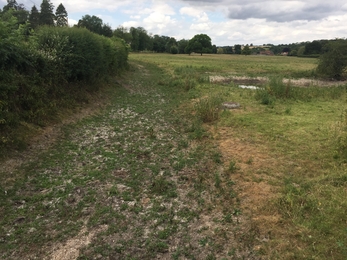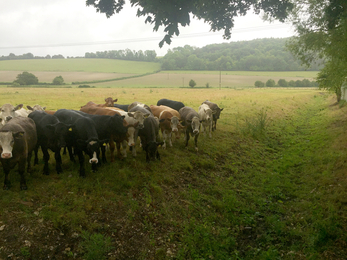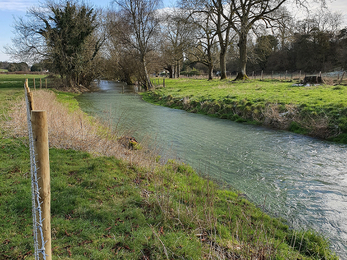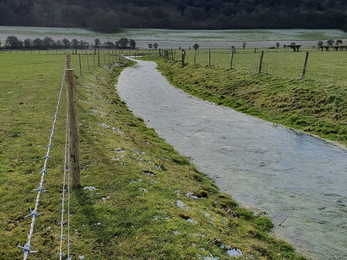For the village of Stoke, the Bourne Rivulet is a prominent feature of the local landscape. At this point in its journey the stream is a natural winterbourne, meaning that it doesn't flow all year round. Instead its waters come and go, fed by rainfall stored in an underground aquifer.
Until recently, if you'd visited the area during a dry period you may have spotted something worrying. Several stream-adjacent fields hold cattle, which had been walking and grazing along the banks. This loosened the soil, eroding the banks and causing sediment to settle on the stream bed.
In February 2021, Wessex Rivers Trust teamed up with a local landowner to tackle this issue at its source. Improvements were made at two local sites, as part of the Watercress and Winterbournes Landscape Partnership Scheme.





